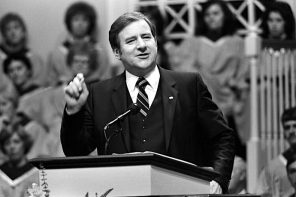Tolling for the searching ones, on their speechless, seeking trail
For the lonesome-hearted lovers with too personal a tale
And for each unharmful, gentle soul misplaced inside a jail
And we gazed upon the chimes of freedom flashing.
—Bob Dylan
David Brooks just can’t stand it. Writing at his shirtiest a month ago (and no one does shirty quite like Brooks), he dismissed Jonathan Franzen’s big new novel as “overly gimlet-eyed and lacking an alternative vision of higher ground.”
Brooks berates Franzen for omitting “the serious parts of life”: “There’s almost no religion. There’s very little about the world of work and enterprise. There’s an absence of ethnic heritage, military service, technical innovation, scientific research, or anything else potentially lofty and ennobling.”
When I saw the Brooks column, I had to wonder whether he and I were even reading the same novel. I read Franzen’s opus as a large-themed morality tale, very much in the Tolstoyan tradition (War and Peace hovers provocatively in the background—Brooks and I agree about that much). Yes, there are “low-ceilinged” perspectives in Franzen that are lacking in Tolstoy, but this is hardly the fault of an effete and cynical US literary culture. We have low ceilings and low ambitions because of a decadent culture of empire and overconsumption that Brooks refuses to see as problematic. From his op-ed perch at the Times, Brooks never stops preaching that a return to individual virtue and individual enterprise will yet save America, but he cannot bring himself to acknowledge how bourgeois virtues inevitably become warped within the constraints of a larger systemic corruption. Franzen’s work deals directly with this systemic corruption and in a way that is both hilarious and highly indignant.
Salvation History
One also has to wonder how a reviewer might claim that there’s no religion, nothing about the business world, no ethnicity, and no military service. These subjects ripple right through Freedom, though not in un-ironic ways. If anything, for example, Walter is too Swedish and has too much technical and scientific expertise.
Freedom is ostensibly about the Berglunds: Walter and Patty and their children Jessica and Joey. As in The Corrections, Franzen gives us a kind of salvation history about Midwesterners with troubled souls; although this time we begin in St. Paul, not St. Louis. It happens that Patty is not a native Minnesotan (she’s from Westchester County), but she fits right in there with her lanky beauty as a former hoops star and her extreme neighborliness. Patty has become somewhat lost in her life and marriage, however, in part because of an unresolved obsession with Walter’s old Macalester College roommate, a handsome nihilist named Richard Katz who perfectly plays the role of Satan to the Berglunds’ Adam and Eve. Patty is also tormented by a complex and overly protective love for her son Joey.
And then there’s Walter Berglund, successful environmental lawyer and paragon of political correctness, who has triumphed over a very difficult and impoverished childhood up in the Iron Range near Duluth (Dylan’s birthplace) and who overcompensates for his own father’s anger and alcoholism by becoming excessively and impossibly good: deeply good to his distant and confused wife, deeply good to his children, deeply good to his treacherous best friend Richard Katz, and fantastically good to endangered species—to threatened songbirds in particular. Walter may not go to church, but he is a recognizable saint in the 21st century-appropriate faith of passionate environmentalism.
The male Berglunds—Walter and Joey—are both undone by the shadowy and interlocking worlds of Big Energy and American imperial overreach in the Middle East. Walter leaves his good job with the Nature Conservancy to become a DC-based environmental shill for a Houston oil and gas player (and Bush family friend) named Vincent Haven (Franzen’s use of surnames is consistently arch in a way that Dickens would appreciate). With the help of his nubile young Indian-American assistant, Walter becomes complicit in Haven’s scheme to save a big chunk of West Virginia habitat for the endangered cerulean warbler. He continues even after learning that the price of creating the haven is that Haven will turn over a fifth of the acreage to coal operators who will use ruinous mountaintop removal techniques. Here coal sludge does superb metaphoric duty in relation to the parlous state of Walter’s life and marriage.
Prodigal Son Joey, now thoroughly estranged from his dad, turns into a loutish Republican frat boy at UVA and then stumbles at age 20 into an absurdly lucrative part-time job finding rusted and useless Polish truck parts to ship into Iraq. Joey’s employer is a soulless, politically-connected outfit clearly modeled after KBR/Halliburton; Joey also falls momentarily under the spell of his UVA roommate’s armchair warrior father, a Martin Peretz-Richard Perle amalgam of swaggering self-importance.
Walter explodes into cathartic rage against Haven’s treachery when he learns the unbearable truth of Patty’s long-ago treachery with Richard. Joey’s epiphany (and the start of his eventual redemption) comes when he sees news footage of US soldiers being massacred because their Polish trucks break down.
Mockery of Freedom
And this is what David Brooks overlooks completely: Jonathan Franzen’s own smoldering outrage over the obscene mockery that is made of “freedom” through such dishonorable and dishonest campaigns as “Operation Iraqi Freedom” (now concluded—hah!) and “Operation Enduring Freedom” (in which US service members continue to be killed and maimed in Afghanistan for no clear or compelling purpose).
In 2003 Brooks found the anti-war slogan “No Blood for Oil!” not at all to his taste: to him that chant was simplistic, jejune, etc. Yet in the bigger picture, how can anyone now fail to see how these interminable wars are in fact very much about oil—and thus also about our accelerating environmental apocalypse?
There is nothing small-bore or contemptible about a novel that explores the wonder and heartbreak of romantic love (all errant Berglunds are eventually restored to their true loves) against the distant thunder of imperial warfare. And because Walter Berglund is no Pierre does not make it impossible to admire him. I admire him a great deal, even when he is taking Haven’s money and at least trying to wrest some good outcomes from Vin Haven’s twisted bird preservation caper.
Once Walter’s life starts to unravel—at the point he realizes that he is falling for his young assistant despite his principles—it strikes him that there is “no controlling narrative”: “he seemed to himself a purely reactive pinball in a game whose only object was to stay alive for staying alive’s sake.” But this is not the end. Self-pity and anomie are not the end. In the shadow of rancid American Empire and unrelenting political chicanery Walter and Patty will fight on—for their own integrity and for their country’s integrity. Freedom is no bourgeois melodrama; it is our national tragedy in comedic garb.




